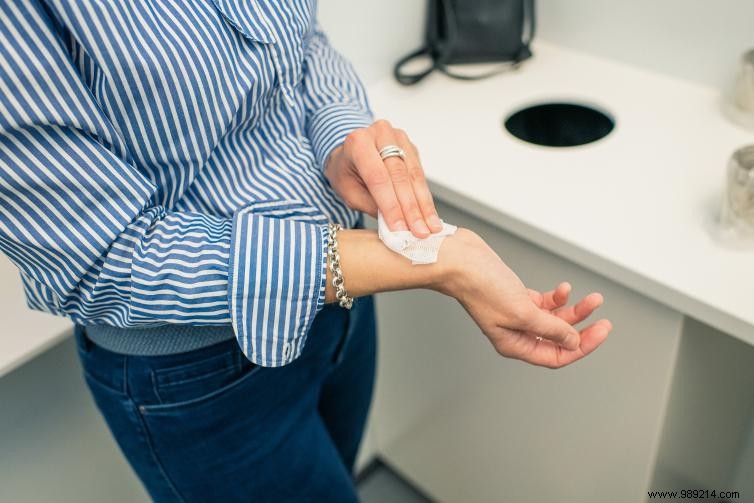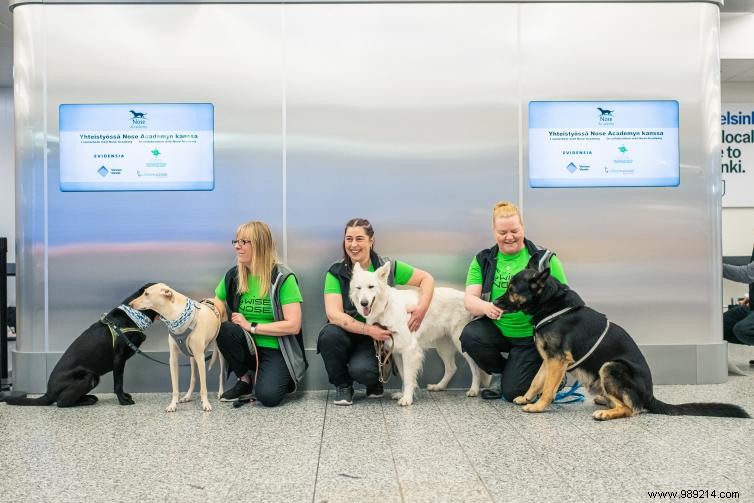For the past few days, dogs have been deployed at Helsinki airport (Finland) to detect Covid-19. These tests are mainly carried out on passengers arriving from outside the country.
We know that some dogs can detect the presence of cancers. Others may also smell the "smell" of seizures or malaria. More recently, some have also proven to be very effective in detecting yellow dragon disease which is ravaging citrus crops in the United States. Naturally, some researchers therefore wondered whether dogs could also detect Covid-19. In this spirit, work has been carried out in several countries.
One French study found that dogs trained to sense the difference between underarm sweat in healthy people and those with the novel coronavirus could do so with 95% certainty . Another German study, meanwhile, found that dogs trained to do the same with saliva samples could detect Covid-19 with 94% accuracy .
Finally, tests conducted by a research group at the University of Helsinki revealed that dogs were able to “smell” the virus with certainty at almost 100% , by simply sniffing a wipe previously passed on the skin of a human. And it is this program that interests us today.
The few dogs participating in these trials have been operating for a few days at Ulla Lettijeff airport in Helsinki (Finland), on behalf of the airline Finavia.
"We are among the pioneers “said airport manager Ulla Lettijeff. “As far as we know, no other airport has attempted to use canine odor detection on such a large scale against Covid. We are satisfied with the initiative of the city of Vantaa (Helsinki metropolitan area). This could be a further step forward in the fight against the coronavirus “.
People who are allergic or afraid of dogs have nothing to worry about, since they have no direct contact with canine detectives . Passed over the skin of all passengers upon their arrival at the airport, the wipes are indeed placed in a separate cabin where four dogs are waiting. In the event of positive signs, the passengers concerned are directed to a health information point.


The upside is that these dogs can also identify the presence of the pathogen a few days before symptoms even appear .
The other big advantage of this approach is that the results are communicated much faster than in the laboratory. In addition, these tests require a much smaller sample size (ten to one hundred molecules versus eighteen million required for laboratory testing ).
According to The Guardian , this pilot program is expected to last four months, after which the results will be evaluated. If this goes well, the presence of sniffer dogs could eventually become more democratic.